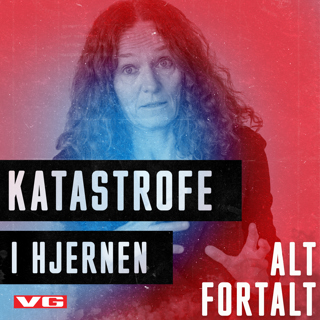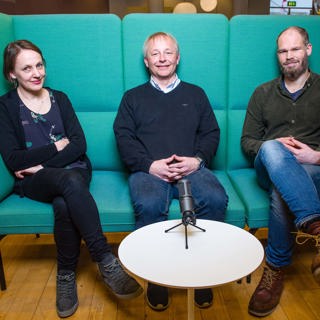
Ignacio Aguiló, “The Darkening Nation: Race, Neoliberalism, and Crisis in Argentina” (U Wales Press, 2018)
In The Darkening Nation: Race, Neoliberalism, and Crisis in Argentina (University of Wales Press, 2018), Ignacio Aguiló studies the sociocultural impact caused by the failure of the IMF economic measures in Argentina of 2001-2002. Through the lens of cultural production (films, novels, short stories, artwork and music), the author explores two of the country’s so-called exceptionalisms: whiteness and economic success. These myths, heavily endorsed by the military dictatorship during the 1970s and early 1980s, created a sense of homogeneity and uniqueness that came into question at the time of the crisis. All of the cultural products studied by the author show different aspects of what was actually a crisis in the exceptionality myths that linked race with progress. Pamela Fuentes is Assistant Professor in the Women’s and Gender Studies Department, Pace University, NYC campus. Learn more about your ad choices. Visit megaphone.fm/adchoices Support our show by becoming a premium member! https://newbooksnetwork.supportingcast.fm/critical-theory
19 Jun 201859min

Aaron Kuntz, “The Responsible Methodologist: Inquiry, Truth-Telling, and Social Justice” (Left Coast Press, 2015)
In this episode, I speak with Aaron M. Kuntz about his book, The Responsible Methodologist: Inquiry, Truth-Telling, and Social Justice (Left Coast Press, 2015). This book offers a thorough and much-needed interrogation of the role of research methodologist in today’s neo-liberalist era. Kuntz reflects upon the social and cultural structure that gave rise to the conventional role of a methodologist, a technocrat and middle-manager of knowledge production. He urges social and educational researchers in general, and research methodologists in particular, to move away from such a morally indifferent position and to encompass a social justice oriented approach to research. In his book, Kuntz also mobilizes the latest social theories from post-structuralism to new materialism to reconceptualize the meaning of truth and the responsibility of researchers. This thought-provoking and beautifully executed book will bring the readers to the central issues and debates with which contemporary researchers and research methodologists have been wrestling. It will be of interest to research methodologists, social and educational researchers, and professionals doing social justice work across different domains. Pengfei Zhao holds a doctoral degree in Inquiry Methodology from Indiana University-Bloomington. Among her research interests are qualitative research methodology, youth culture, identity formation, and comparative sociological and educational studies. She is currently working on a book manuscript studying the coming of age experience of rural Chinese youth during and right after the Cultural Revolution. Learn more about your ad choices. Visit megaphone.fm/adchoices Support our show by becoming a premium member! https://newbooksnetwork.supportingcast.fm/critical-theory
18 Jun 20181h 5min

Bruno Chaouat, “Is Theory Good for the Jews?: French Thought and the Challenge of the New Antisemitism” (Liverpool University Press, 2017)
“Is Theory Good for the Jews?” asks author Bruno Chaouat, professor of French at the University of Minnesota, in Is Theory Good for the Jews?: French Thought and the Challenge of the New Antisemitism (Liverpool University Press, 2017) . The title carries a measure of Chaouat’s characteristically ironic, self-deprecatory, yet polemical tone. So, Chaouat wonders, in both winking reference to the anti-Semitic trope of Jewish tribalism and self-involvement, and at the same time in all sincerity, whether “Theory” – in particular the canon of philosophy, literature, and social thought that grew largely out of Heideggerian roots and which continues to find contemporary purchase – is able to use its own tools to deal with today’s resurgent strains of anti-Semitism. In this episode, Chaouat discusses several recent events in French letters, including the 2010 publication of writer, diplomat and French Resistance fighter Stéphane Hessel’s manifesto Time for Outrage and novelist Salim Bachi’s literary op-ed, “Moi, Mohammed Merah,” a fictionalized account of the 2012 Toulouse attacks, told from the point of view of the murderer. We also talk about earlier influential figures, such as Georges Bataille and Jean Genet, and discuss how the vocabularies they invented, which they used to retool ideas of evil, transgression, and “our common inhumanity,” come to be recoded in service of a new “moralistic turn.” Daveeda Goldberg is a PhD candidate in the Department of Humanities at York University, in Toronto, Canada. Learn more about your ad choices. Visit megaphone.fm/adchoices Support our show by becoming a premium member! https://newbooksnetwork.supportingcast.fm/critical-theory
11 Jun 20181h 12min

Kyla Schuller, “The Biopolitics of Feeling: Race, Sex, and Science in the Nineteenth Century” (Duke UP, 2017)
Beginning with a discussion about Black Lives Matter may seem like an unlikely place to start a book about nineteenth century science and culture. However, by contrasting Black lives with White feelings, Kyla Schuller sets up the central conflict of her book. The Biopolitics of Feeling: Race, Sex, and Science in the Nineteenth Century (Duke University Press, 2017) interrogates the role of sexual difference in the management of racialized populations, making this book a necessary read for understanding the history of such current social movements as Black Lives Matter and the trans* exclusionary “Pussy hat” feminism. From the very beginning of the book, our conceptions of nineteenth-century science are challenged. For much of the century, many US scientists championed Jean-Baptiste Lamarck over Charles Darwin as their most prominent influence. In their quest to refute determinist theories of heredity, the neo-Lamarckians of the American School of Evolution advocated for a self-directed version of evolution. These scientists argued that Anglo-Saxons have the most adaptable features and impressionable heredity. This impressionability was what made Whites more sentimental and civilized than other races, who were not as impressionable and seen as largely stuck in a prior stage of progressivist evolution, according to E.D. Cope and the American School of Evolution. Whites were also seen as having greater sexual dimorphism than other races, while women of color were not seen as achieving true womanhood. Kyla therefore finds the origin of binary sex enveloped in racialized difference. Beyond the subject of evolutionary science, this book introduces us to the Black uplift project of Frances Harper, the vagina politics of Dr. Elizabeth Blackwell and Dr. Mary Walker, the biophilanthropy of Charles Loring Brace, and the assemblage theories of W.E.B. DuBois. The Biopolitics of Feeling is packed with interesting, and sometimes shocking, historical anecdotes, such as Walker’s sex advice book to men in 1878, E.D. Cope’s sometimes destructive and violent rivalry with O.C. Marsh, and the “orphan trains” that took two hundred thousand kids out West for educational and labor purposes. The breadth of this book shouldd be of interest to a number of scholars interested in the history of science, literature, and medicine. Meanwhile, Kyla’s engagement and challenge to New Materialist theories is likely to be canonical for future Feminist STS scholars. Chad J. Valasek is a Ph.D. Candidate in Sociology & Science Studies at the University of California, San Diego. His research interests includes the history of the human sciences, the influence of the behavioral sciences on medical practice and health policy, and political activism around science and the arts. You can follow him on Twitter @chadjvalasek. Learn more about your ad choices. Visit megaphone.fm/adchoices Support our show by becoming a premium member! https://newbooksnetwork.supportingcast.fm/critical-theory
1 Jun 201858min

Christina Scharff, “Gender, Subjectivity, and Cultural Work: The Classical Music Profession” (Routledge, 2018)
What sort of inequalities characterize classical music today? In Gender, Subjectivity, and Cultural Work: The Classical Music Profession (Routledge, 2018), Christina Scharff, a senior lecturer in culture, media and creative industries in the department of Culture, Media and Creative Industries at King’s College London, offers a detailed analysis of the way the classical music profession is marked by race, class, and gender inequalities. Drawing on contemporary debates in feminism, the work of Michel Foucault, and a critique of the entrepreneurial self, the book offers a comparative study of London and Berlin. In doing so it positions classical music as a crucial site for understanding not only cultural and creative industries, but the entirety of our unequal, post-feminist economy and society. It will be required reading and citation for all creative industries scholars, as well as an important text for cultural and media studies, sociology, music, and anyone interested in the relationship between culture and social inequality. Learn more about your ad choices. Visit megaphone.fm/adchoices Support our show by becoming a premium member! https://newbooksnetwork.supportingcast.fm/critical-theory
29 Mai 201835min

Dieter Vandebroeck, “Distinctions in the Flesh: Social Class and the Embodiment of Inequality” (Routledge, 2017)
How is class inequality intertwined with the body? In Distinctions in the Flesh: Social Class and the Embodiment of Inequality (Routledge, 2017), Dieter Vandebroeck, an assistant professor in sociology at the Free University of Brussels, explores this question by a deep engagement with contemporary theory and detailed empirical evidence. The book takes on sociology’s turn to the body in the context of Pierre Bourdieu’s work, in particular the sense of bodies in (unequal) social relations with each other and the distinctions flowing from those relations. Using a huge range of examples, including food and eating practices, sport, and body image, the book moves to position the body as a most crucial site for understanding contemporary inequality. Although the book speaks primarily to sociological debates, the engagement with theory and the empirical analysis is an essential read for anyone interested in how bodies are social, as well as individual. Learn more about your ad choices. Visit megaphone.fm/adchoices Support our show by becoming a premium member! https://newbooksnetwork.supportingcast.fm/critical-theory
22 Mai 201843min

Mark Rifkin, “Beyond Settler Time: Temporal Sovereignty and Indigenous Self-Determination” (Duke UP, 2017)
Mark Rifkin’s Beyond Settler Time: Temporal Sovereignty and Indigenous Self-Determination (Duke University Press, 2017) engages fields including physics, phenomenology, native storytelling, and queer temporality. He describes the organization of Beyond Settler Time as “a series of meditations on particular kinds of temporal tensions—ways that Indigenous forms of time push against the imperatives of settler sovereignty” (ix). Exploring a range of sources including film, government documents, fiction, histories, and autobiography, Rifkin considers how time is defined by non-native ideologies. Learn more about your ad choices. Visit megaphone.fm/adchoices Support our show by becoming a premium member! https://newbooksnetwork.supportingcast.fm/critical-theory
11 Mai 201851min

Sarah Schulman, “Conflict is Not Abuse: Overstating Harm, Community Responsibility, and the Duty of Repair” (Arsenal Pulp Press, 2016)
Sarah Schulman’s Conflict is Not Abuse: Overstating Harm, Community Responsibility, and the Duty of Repair (Arsenal Pulp Press, 2016) examines how accusations of harm are appropriated and deployed by powerful people, groups, and political entities in order to justify extreme punitive measures against marginalized “others.” The book exposes how the powerful capitalize on the language of abuse and misrepresent normative conflict, expressions of difference, and resistance to abuse, in order to avoid accountability and self-reflexivity. Linking a wide range of contexts, from intimate relationships to rapports between nation-states, Schulman highlights how negative in-group dynamics—organized around practices of group shunning, refusal of self-examination, and false loyalty that rejects accountability to others—become the “centerpiece of most social injustice”. Conflict is Not Abuse calls for us to interrupt and seek alternatives to escalation and violence by embracing mutual accountability and a sense of community responsibility for conflict resolution, rather than allowing the punitive state to act as the exclusive arbiter of conflict. Sarah Schulman is a Distinguished Professor of English at the College of Staten Island where she teaches courses on fiction writing, and is a prolific novelist, playwright, filmmaker, and non-fiction writer. Learn more about your ad choices. Visit megaphone.fm/adchoices Support our show by becoming a premium member! https://newbooksnetwork.supportingcast.fm/critical-theory
4 Mai 20181h 2min




















